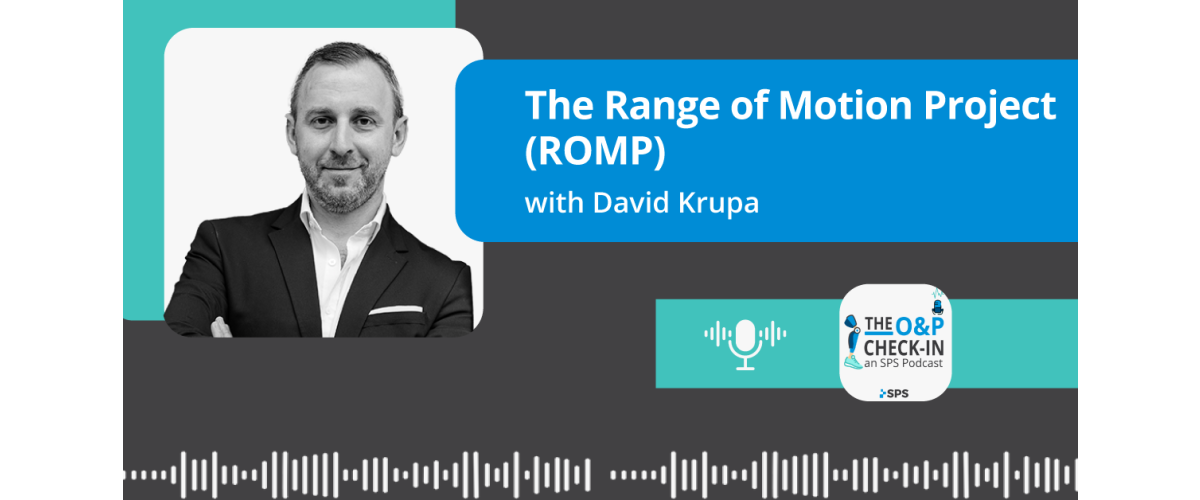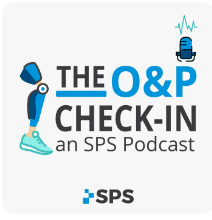We were happy to welcome David Krupa, Executive Director and Co-Founder of the Range of Motion Project, to The O&P Check-in: an SPS Podcast to chat about his work with The Range of Motion Project (ROMP).
The following includes an excerpt from our conversation, edited for length and clarity. Click here to listen to the full interview.
The O&P Check-in: an SPS Podcast unpacks trends and stories from the tight-knit community of O&P professionals. From patient care to technology, best practices, and regulations, this podcast features topics that help you stay current.
What is the Range of Motion Project, AKA ‘ROMP’? How did it come to be?
The Range of Motion Project (ROMP) is an international non-profit organization dedicated to ensuring access to high quality prosthetic care and rehabilitation services to underserved people with amputation, improving mobility and independence. ROMP operates two full time clinics in Guatemala and Ecuador and partners with clinics in the US to provide sustainable care.
Almost 20 years ago now, in 2005, ROMP was born in Chicago out of my residency experience and some of my experiences traveling and volunteering abroad. I wanted to do something more to help other people with amputation beyond the U.S. access quality prosthetic care and that is what ROMP is all about. It has been an organically grown community over the last 19 years of people who recognize the human dignity of all people with amputation, wish to empower them in a sustainable and high-quality way, and do so by creating community wherever we operate. Here we are 20 years later, having served several thousand people in the Americas.
Could you walk us through what a typical volunteer trip to Ecuador or Guatemala looks like?
Our prosthetists, orthotists, physical therapists, occupational therapists, nurses, and psychologists deliver clinical care in Latin America year-round. We have four to five volunteer clinical programs each year in Ecuador and Guatemala. We just had one with the Colorado State University School of Biomedical Engineering. We've set up a curriculum for the university to provide these undergrad students who are coming into our program with an interest in prosthetics and orthotics with hands-on clinical and technical experience.
They tend to have a weekend at the beginning of the program for cultural excursions, touring, and getting to know Guatemala or Ecuador before diving into clinical work throughout the rest of that week.
We have patients who come from all over Ecuador who have been pre-qualified for ROMP. The student volunteers shadow and assist our clinical leads. Prosthetists from El Salvador and Ecuador are working with us and leading those groups. For the clinicians, residents, and recent graduates that come down to serve, they would take the lead on clinical cases, and work alongside the Latin American colleagues in ROMP clinics.
During the clinical programs, patients receive not only prosthetic care but also psychological support and physical therapy. This concentrated effort allows us to build bridges between our communities and cultures, facilitate knowledge exchange, and allow our staff to treat a lot more patients with their limited capacity. When our volunteers leave, those patients continue within the ROMP system and receive all appropriate follow-up care.
Click the following button to hear the full conversation:


